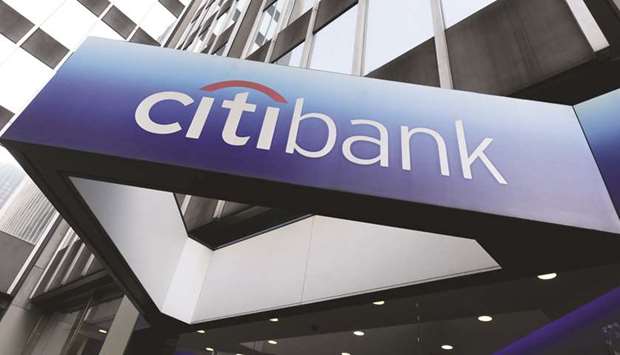Turkey’s crisis is quickly reverberating through global banks, cutting stock prices for lenders with even little to no direct exposure, as investors worry about the unknown paths that contagion could take through the financial system.
The main concern is that European lenders, which have been looking to emerging markets as rich sources of growth, may get squeezed by turmoil breaking out in both Turkey and Russia, as the US ratchets up sanctions. Their weakening currencies and the mounting potential for loan defaults there hammered shares of lenders including Spain’s Banco Bilbao Vizcaya Argentaria SA, Italy’s UniCredit SpA and Dutch-based ING Groep NV.
Yet even US firms that have disclosed relatively little exposure to Turkey fell as that country’s crisis escalated on Friday, with Citigroup Inc down the most since May. The moves reflect how sensitive investors remain to risks in a sector which lost billion in Greece and has yet to fully restore profitability after the 2008 financial crisis.
At many US lenders, “their exposure to any of these countries is fairly minimal,” said Marty Mosby, an analyst at Vining Sparks. “It’s really more the impact it has on the general financial markets and the anxiety level that can perk up from time to time. ”
Indeed, the turmoil in Turkey could ultimately touch overseas banks – especially those with large international or Wall Street operations – through a variety of channels. Operations in emerging markets can lose significant value as the dollar strengthens, as it did on Friday. And swift currency swings or securities-market routs can catch banks’ traders off guard, saddling them with losses while trying to facilitate client transactions.
“My guess is you’re going to get people cutting estimates, if we get bad volatility here on the capital markets front,” said Charles Peabody, a bank analyst at Portales Partners. “It looks like we’re starting to get that.”
Turkey entered a full-blown financial meltdown on Friday, after President Recep Tayyip Erdogan declared his refusal to bow to US political demands and market pressures.
Citigroup, the major US bank that draws the most revenue internationally, fell 2.4% as of 4.15pm Friday in New York. The company had said in a quarterly filing that Turkey wasn’t among its top 25 country exposures at midyear, which means it’s something less than $3.7bn. Goldman Sachs Group Inc fell 1.8%. It pegged its total credit exposure to Turkey at $2.53bn at the end of June, almost entirely with non-sovereign counterparties or borrowers, and said it had $2.05bn of Turkish collateral.
BBVA, owner of almost 50% of Istanbul-based Turkiye Garanti Bankasi AS, fell more than 5%. Garanti and its local peers face a wave of corporate defaults and loan restructurings as the lira’s collapse makes it harder for Turkish companies to repay the dollars they have borrowed in recent years.
Many Turkish lenders are already in talks to restructure billions of dollars of loans, a process that may end up forcing them to accept losses. That in turn could prompt them to seek more capital from their European partners.

Even US firms that have disclosed relatively little exposure to Turkey fell on Friday, with Citigroup down the most since May
